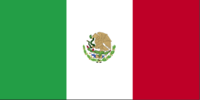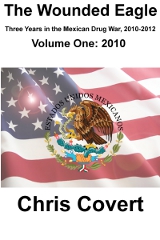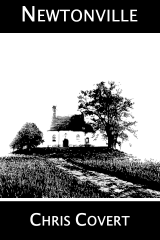Calderon to Sicilia: Not So fast, Sheehan-Breath Part I

2011-06-25
Posted by: badanov
The one civilian out of more than 100 million in Mexico who have never even had even one single audience with Mexican President Felipe Calderon Hinojosa was told Thursday that the war on drugs would be fought using the available means.
Javier Sicilia, a Mexican writer and poet who lost his son in a drug murder late last March was granted a second meeting Thursday with Calderon to discuss his proposals for ending the drug war.
Among those proposals were those which could impact Mexican national security overall, including returning the army to the barracks, and not using them to fight Mexican drug cartels.
Other proposals include legalization of drugs, a pledge of non-violence and a means to recall corrupt politicians.
The ideas and thus the discussions were rejected by Calderon out of hand because in the context of how violent Mexican organized crime has become, Mexican legal and political authorities are left with little choice. The entire political structure is unfairly under fire by the independent left for its response to the totality of crime in Mexico.
To date Sicilia has enjoyed positive treatment by both the Mexican and the international press as a man of peace who is using a great personal tragedy to do some societal good.
And it is hard to argue against a man who has suffered the loss of a child, especially one who was killed in a violent drug related incident.
But an undertow exists in the political currents which have been propelling Sicilia through Mexican which has not been widely reported, but which points to a resurgence of a leftist political movement from the 1980s.
As far as this writer knows, Sicilia had toiled as a writer in relative obscurity, certainly without the international attention he has gained since last March. Among his bonifides are two stints as an editor, one at a literary magazine and one at a leftist political magazine.
Sicilia has long been a creature of the Mexican independent left. Starting with his involvement in the 1980s with the Ecclesiastic Base Communities (BEC) movement in Mexico, a close relative to the Liberation Theology movement in Latin America, he had a well known association with Sergio Mendez Arceo, known as the Red Bishop of Cuernavaca.
BECs are considered a forerunner of Liberation Theology, and are considered endorsed by the Vatican II Council. What makes BECs unique in Latin American Catholic churches is that it permits a nexus between lay persons and the church in such area as liturgy, and in Catholic education.
Méndez Arceo was a socialist, who held liberation theology beliefs, and who put his beliefs into action including bringing those beliefs into the church, and by forming Basic Ecclesiastic Base Communities into Mexico and elsewhere.
According to his Wikipedia entry, Mendez Arceo was closely involved with the two communist guerilla movements in El Salvador and Nicaragua, as well as a guerilla movement in Guerrero state in Mexico. He had also been awarded a medal by Cuban communist dictator Fidel Castro, and when Mendez Arceo returned to Mexico he began to espouse democratic socialism.
One of the programs of the independent American left in the early 1980s was that of an "underground railroad" of linked churches, both Catholic and protestant which would provide sanctuary for war refugees fleeing El Salvador. The original idea behind sanctuary was to provide a means for fleeing persons, who were presumably persecuted for the beliefs a means of getting to Canada and declaring political sanctuary. Under US law at the time, since El Salvador was receiving US military assistance, and this its citizens were allies, the US government could not provide political sanctuary.
And so the flow of refugees came from El Salvador courtesy of liberal protestant and Cathloc churches, soon to include whole cities such as Cambridge, Massachusetts and others, which at the time flaunted the newly passed Moakley-DeConcini immigration law, the first to provide amnesty for illegal aliens.
In time, also came La Maras (MS-13), the Pan American criminal youth gang that nearly every drug cartel in Mexico now draws from for their shooters. Arguably, it was the sanctuary movement in the 1980s that may have been instrumental in providing Mexican organized crime with some of its personnel 30 years later.
Two still extant political movements, however, which followed the left's political successes of the 1980s, made a reappearance in supporting Sicilia during his marches in May and in June and points to a possible resurgence of some of the more loopy ideas the left developed in the 1980s.



